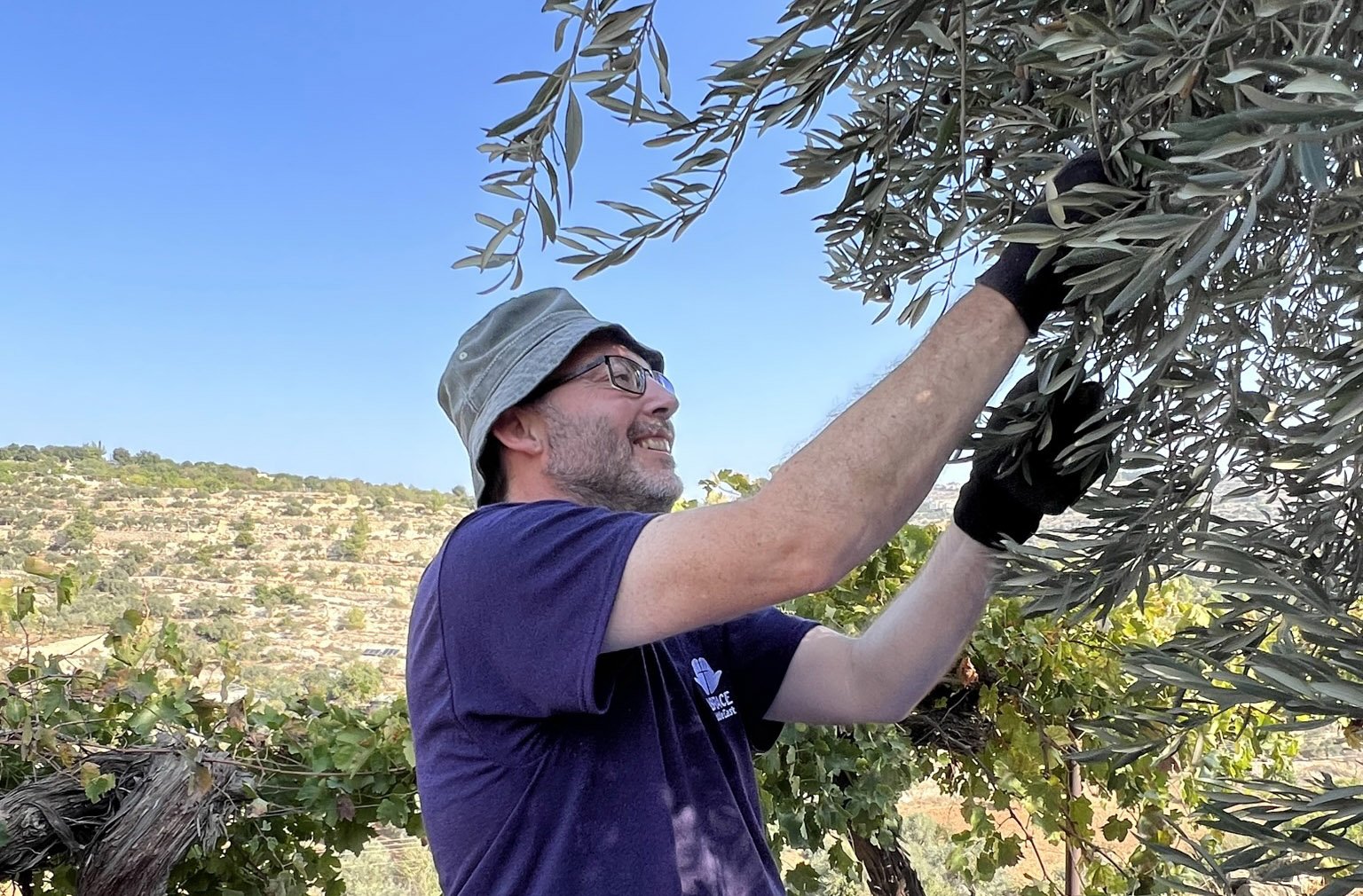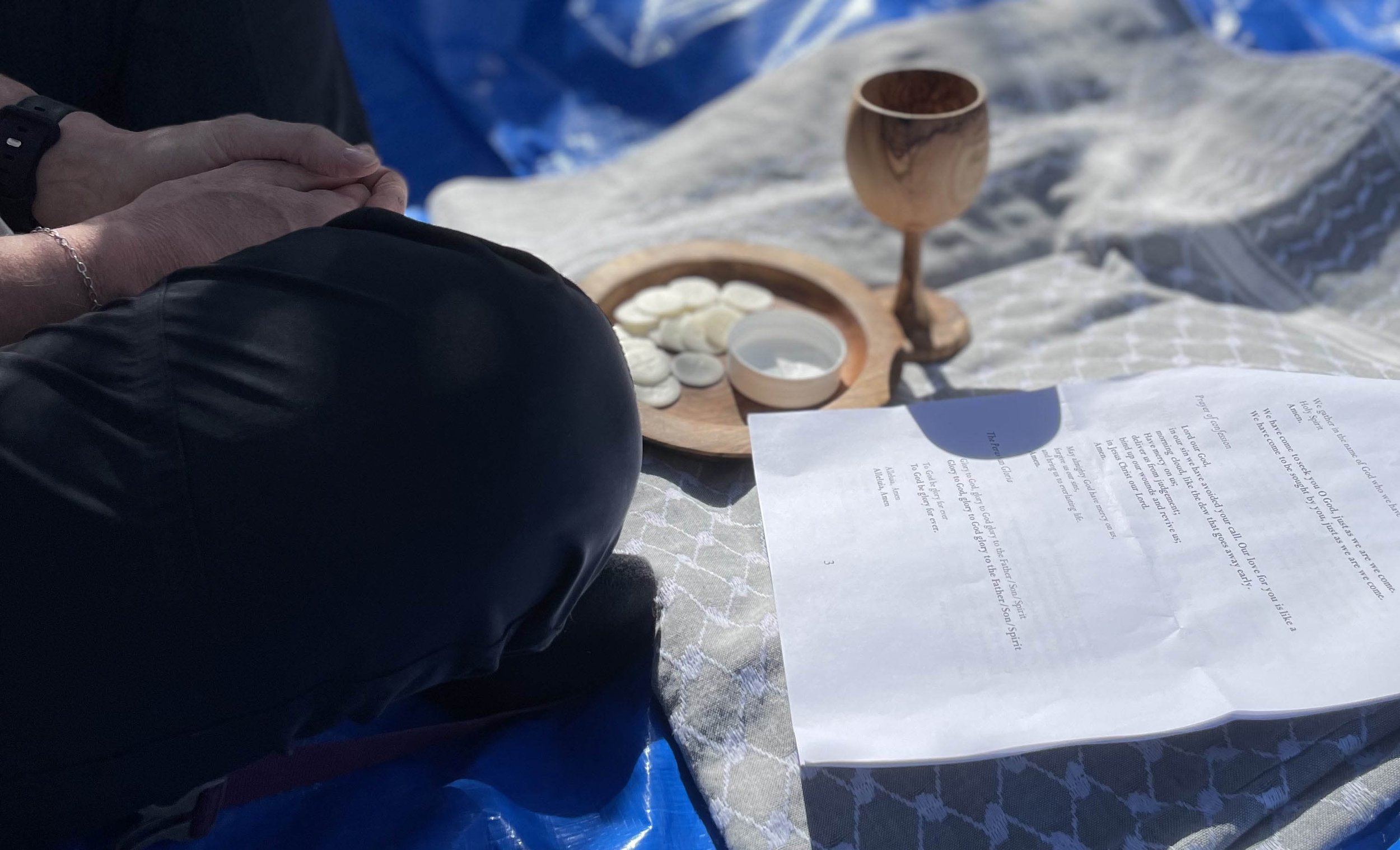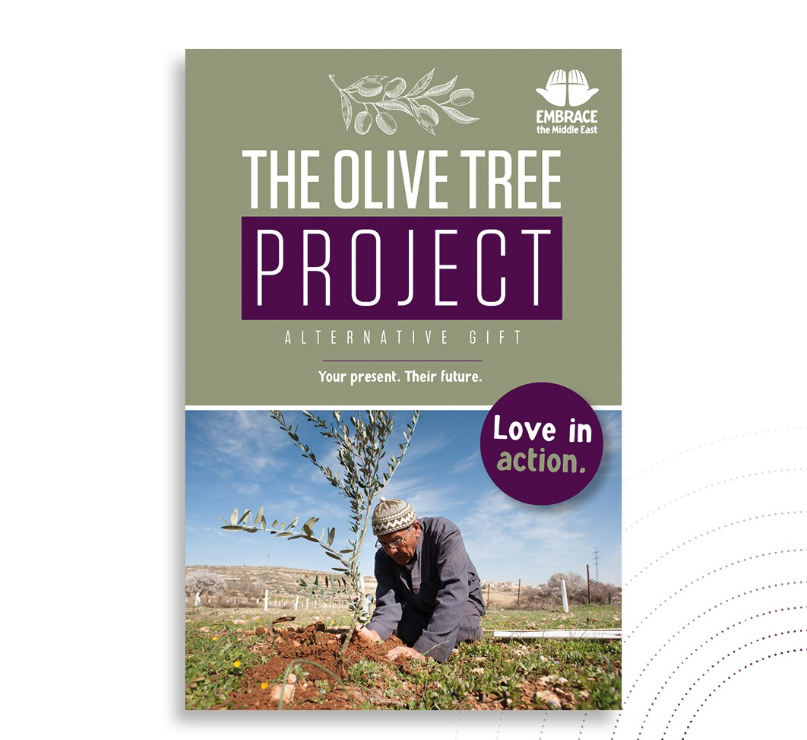My olive harvest experience: A trip of joy and sadness
November 2022
Rev’d David Coaker, of the United Reformed Church, recently took part in the Embrace olive picking trip, travelling to the West Bank to help Palestinian farmers with their olive harvest. Here he reflects on his experience.
The last time I visited Israel/Palestine was over twenty years ago as I waited to hear whether I would be accepted into preparation for URC ministry. We visited the holy sites and Christian Aid projects, which gave me a sense of the Palestinian context, but my abiding memory is a sense of peace and affirmation sitting on the shore of Galilee after a boat trip across the lake.
After my visit this October, as part of an Embrace group from across the UK to pick olives with the East Jerusalem YMCA, I’m left with different memories. There was joy there in the shared experience and the welcome we received from Palestinian families to assist with their harvest. We carried stepladders, tarpaulins and buckets up and down valleys. We heard the satisfying patter of olives falling onto the ground, and then filling sacks to the brim. We celebrated communion together in olive groves. And we shared stories with farmers, their families, Palestinian teenagers, and each other. There was light in those moments of solidarity and shared effort.
Celebrating communion together in the olive groves.
There were also shadows - as walls and fences were noticed, armed patrols passed by and, to our eyes the unassuming apartment blocks on the surrounding hills, were pointed out as Israeli settlements. Over twenty years ago the situation was tense – it was shortly after the Oslo accords – but now what seemed temporary checkpoints are transformed into military outposts; the separation barrier looms around and through communities; settlements (better described as new towns) seem to be everywhere; new Israeli-only roads cut through the West Bank; and the more than seventy-year occupation to me, and more importantly to Human Rights Watch, Amnesty International, and B’Tselem - among others - is more accurately described as apartheid.
We had talks from various organisations including Kairos Palestine, the Palestinian Museum of Natural History, and the YMCA’s Rehabilitation Programme. We visited Bethlehem and Jerusalem, passed settlements and seized Palestinian homes, and took in the holy and tourist sites.
We visited Hebron, in which the tourist traps of the glass and keffiyeh factories were in sharp contrast to the city centre where the main street lies abandoned, its former Palestinian occupants forced out, with shop doors welded shut, as a security precaution for the settlers who have made their homes there. It was incredibly eerie and unsettling to walk the deserted street with only teenage soldiers for company.
Hebron main street.
Yet within all this, the Palestinians we met still had hope. There were diverse opinions about whether that hope lies in a one or two-state solution, or by challenging the status quo as apartheid. There was pain in the stories of routine harassment, night-time arrests, imprisonment, loss of land and inequality. There was also compassion for their oppressors, wondering how they cope being fed a constant diet of fear. There was also joy in celebrating the everyday things of life.
Apart from a general sense of the Palestinian plight, the only lasting legacy from my previous trip had been to always include prayers for Israel/Palestine in the intercessions I led. This time I made a list of things to do, questions to ask, times to share my experiences, a commitment to support Embrace, and an abiding affection for olive trees – especially when they are in need of picking!
This trip to pick olives was delayed by lockdowns, but before the pandemic I did put together an Advent candle liturgy to promote congregations purchasing olive trees. I offer it to you to encourage the same, and share the opening verse of the hymn:
The olive tree against the sky
strong and healthy as time goes by.
The olive tree means life and health
to those who tend and till the earth.
They connect us to ages gone,
and keep watch over ages to come.
(Sussex Carol, LM Irregular – On Christmas night all Christians sing)
JOIN US FOR THE NEXT OLIVE HARVEST
We would love to have you on one of our Olive Harvest Trips. To find out more, please get in touch by emailing visit@embraceme.org
SUPPORT THE OLIVE TREE PROJECT
You can help the Olive Tree Project by sponsoring a tree for just £20, which will be planted in Palestine. A sponsored olive tree makes a great alternative gift.




